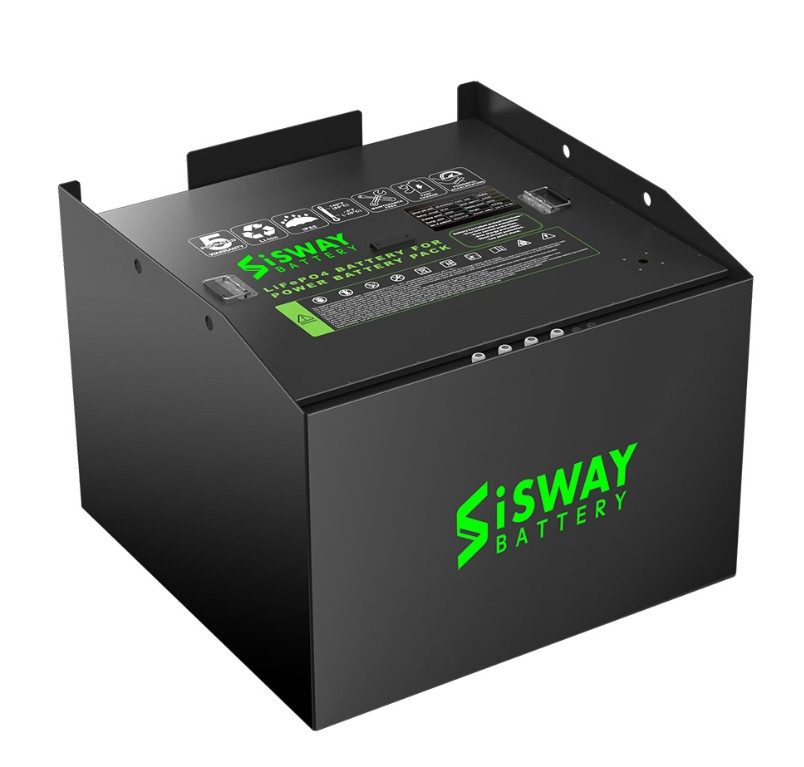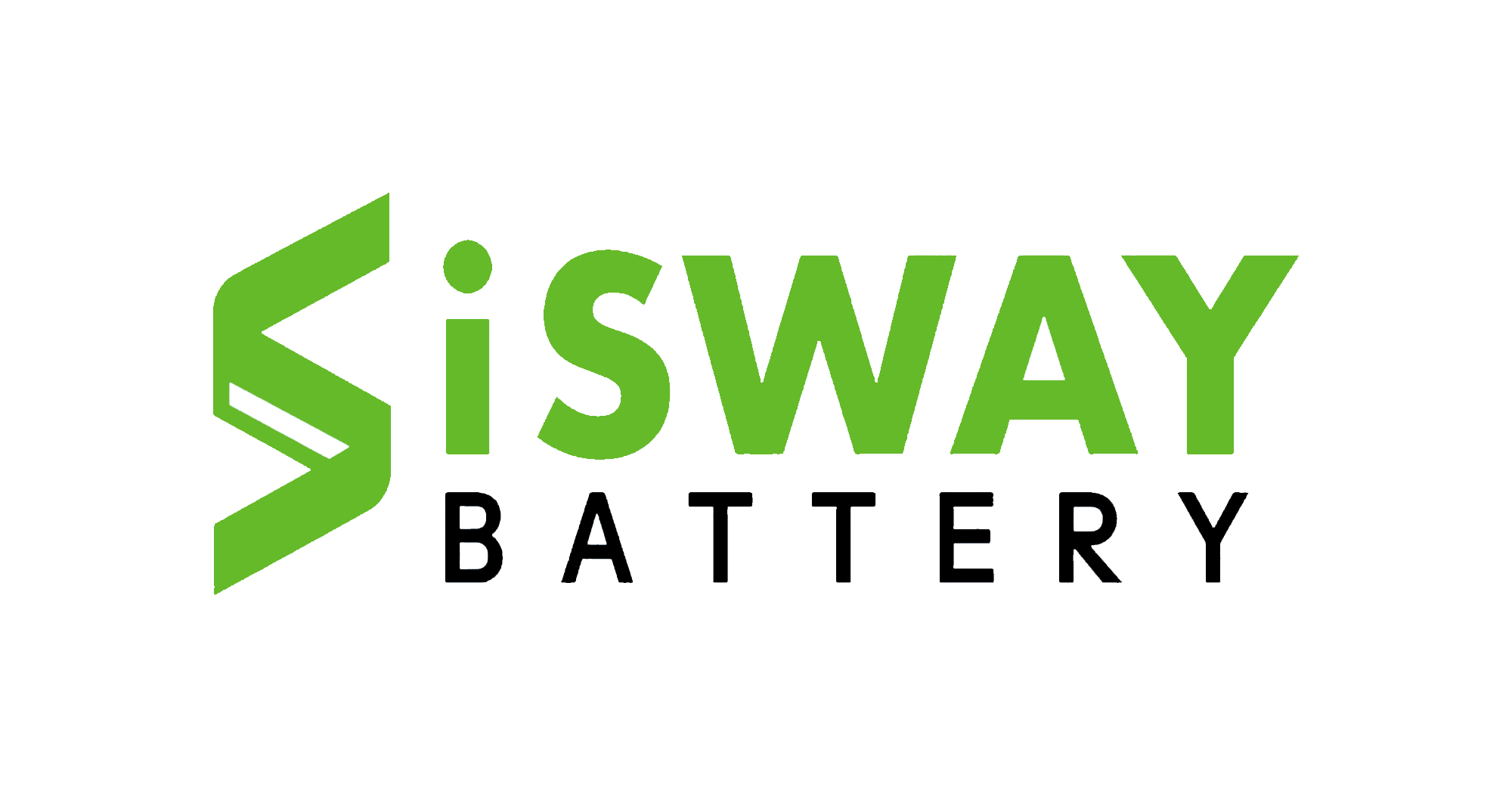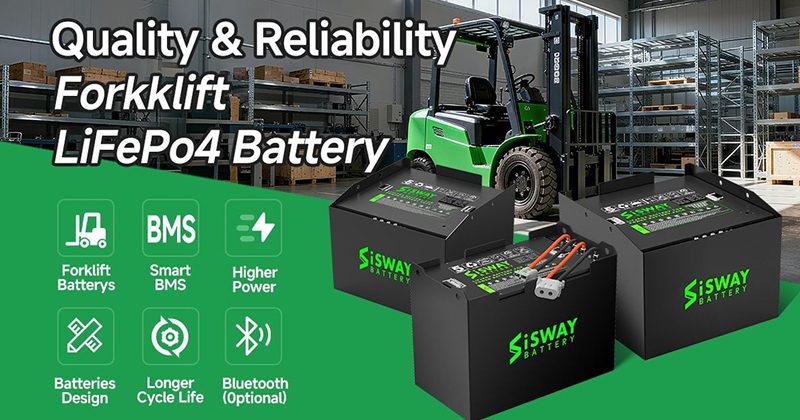Table of Contents
ToggleIntroduction
If you run a warehouse, factory, or logistics operation, you already know how much forklifts matter. They’re the muscle of the operation — moving products, loading shipments, and keeping work flowing smoothly. But behind every forklift is its power source, and that’s where the right battery makes all the difference.
More and more businesses are moving away from old-school lead-acid batteries and upgrading to lithium forklift batteries. Why? Because lithium is faster, safer, and lasts longer. Among them, 36V forklift lithium batteries have become the sweet spot for many operations — powerful enough for demanding shifts, yet efficient enough to save costs.
In this guide, we’ll walk you through what to look for when choosing the best 36V lithium forklift battery, and why the 36V 420Ah Forklift Lithium Battery from Sisway Battery is an excellent choice for boosting efficiency and lowering long-term costs.
Why the Right Battery Choice Matters
Think of your forklift battery as the heart of the machine. If the heart is weak, the whole system suffers. A low-quality battery can mean:
- More downtime from frequent recharging
- Expensive maintenance checks and watering
- Shorter lifespan and costly replacements
- Lower overall productivity
On the other hand, a high-quality LiFePO4 (Lithium Iron Phosphate) battery like Sisway’s 36V 420Ah model can:
- Last up to 4x longer than lead-acid
- Charge in a fraction of the time
- Eliminate the need for messy maintenance
- Deliver safe, consistent power shift after shift
- Save thousands in operating costs over its life
What to Look for in a 36V Forklift Lithium Battery
Not all forklift batteries are the same. When shopping for a 36V lithium solution, here’s what matters most:
⚡ Voltage & Capacity
The voltage (36V) ensures your forklift has enough muscle, while capacity (Ah) determines how long it runs before needing a recharge. The 36V 420Ah battery hits a sweet balance — long runtime without unnecessary weight.
🔄 Cycle Life
Every battery has a lifespan measured in charge cycles. Lead-acid usually tops out at 500–1,000. Lithium? You can expect 3,500+ cycles — meaning years of reliable service.
⏱️ Charging Speed
Waiting 8 hours for a full charge is wasted time. Lithium batteries can hit 80% charge in under 2 hours, and support opportunity charging (topping up during breaks).
🛡️ Safety & Smart Features
Safety should never be an afterthought. A built-in Battery Management System (BMS) like Sisway’s protects against overheating, overcharging, and deep discharge.
💰 Cost Over Time
Lithium costs more upfront, but when you factor in no maintenance, lower electricity bills, and a longer lifespan, it’s actually the cheaper option over the long run.
Spotlight: Sisway 36V 420Ah Forklift Lithium Battery
The 36V 420Ah LiFePO4 battery from Sisway is built for businesses that can’t afford downtime.
Why it stands out:
- Durability: Over 3,500 cycles, designed for long-term use
- Power: 420Ah capacity ensures reliable performance for extended shifts
- Safety: Advanced BMS protects against all major battery risks
- Flexibility: Suitable for forklifts in warehouses, factories, ports, and distribution centers
- Convenience: Zero maintenance — just plug in and go
👉 Browse more options in our full Forklift Lithium Battery range.
Lithium vs Lead-Acid: A Quick Comparison
| Feature | Lead-Acid Battery | Lithium (LiFePO4) Battery |
|---|---|---|
| Lifespan | 500–1,000 cycles | 3,500+ cycles |
| Charging Time | 8+ hours | 2 hours or less |
| Maintenance | High (watering, cleaning) | Zero maintenance |
| Efficiency | 70–75% | 95–98% |
| Safety | Risk of leaks/heat | Smart BMS protection |
| Long-Term Cost | High | Lower overall |
Verdict: If you’re serious about productivity, lithium is the clear winner.
Why Businesses Are Switching to 36V Lithium
- Longer working hours per charge → keep forklifts running all shift
- Faster charging → no overnight wait
- Eco-friendly design → no acid spills, no toxic fumes
- Lower electricity use → big savings on utility bills
- Improved safety → peace of mind for operators
- Better ROI → higher upfront cost, but much cheaper long term
Frequently Asked Questions
Q: How long will a 36V 420Ah lithium battery last?
A: Typically 8–10 years, depending on usage. That’s 3–4x longer than lead-acid.
Q: Can I use a lithium battery in any forklift?
A: Yes. Sisway offers OEM/ODM customization to match different forklift brands and models.
Q: Is it safe to charge lithium batteries during breaks?
A: Absolutely. Lithium supports opportunity charging without reducing lifespan.
Q: What makes LiFePO4 safer than other lithium chemistries?
A: LiFePO4 is highly stable, with lower fire risk. Sisway’s BMS adds an extra layer of safety.
Q: Is this battery suitable for hot, humid climates?
A: Yes. Sisway designs its forklift batteries to perform in tough environments, including Malaysia, Indonesia, and Australia.
Why Choose Sisway Battery?
Sisway isn’t just another battery company. We’re a trusted OEM/ODM lithium battery manufacturer in China with a strong global presence. Here’s why businesses choose us:
- Years of expertise in forklift, golf cart, RV, and energy storage batteries
- Export-ready solutions to USA, Canada, Australia, Malaysia, Indonesia
- Advanced production with strict quality control
- Custom-built batteries to fit your equipment perfectly
- Reliable after-sales support worldwide
📩 Have questions? Reach us at inquiry@siswaybattery.com — our team is ready to help.
Conclusion
Forklifts keep your operations moving — but without the right battery, productivity can grind to a halt. The future of forklift power is lithium, and the 36V 420Ah Forklift Lithium Battery from Sisway is a proven choice for companies that demand performance, safety, and efficiency.
Businesses across the USA, Canada, Australia, Malaysia, and Indonesia are already making the switch to LiFePO4 technology to cut costs and increase uptime. Don’t let outdated lead-acid batteries hold your business back.
👉 Explore our full forklift battery range here: Forklift Lithium Battery Category
📩 Ready to upgrade? Contact inquiry@siswaybattery.com for pricing, OEM/ODM options, or bulk orders.



